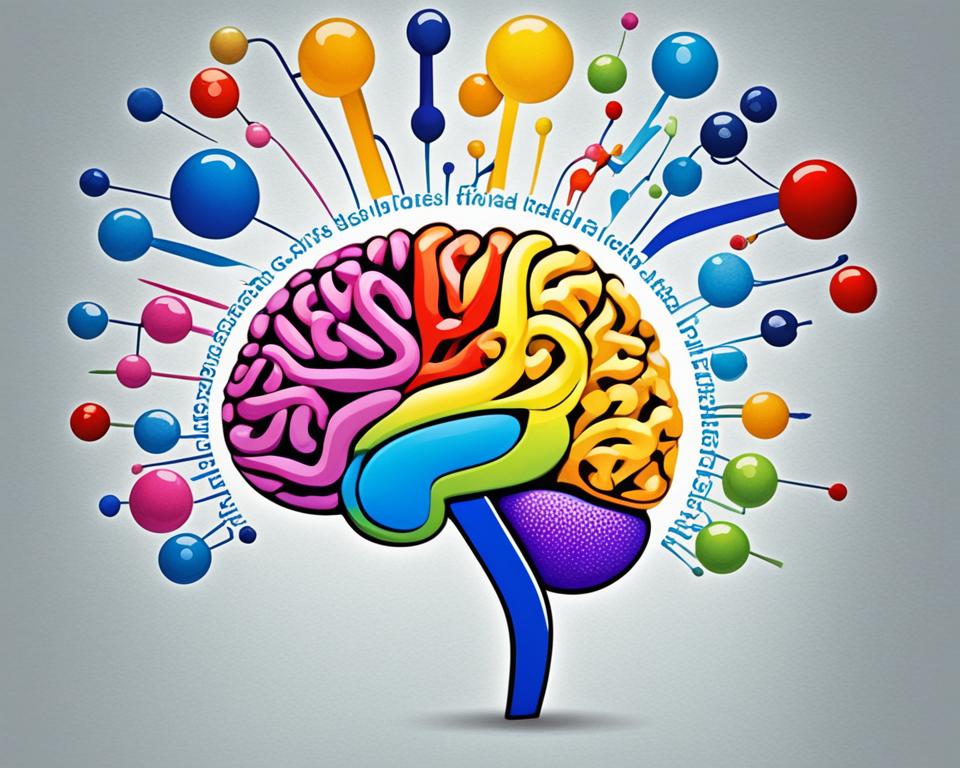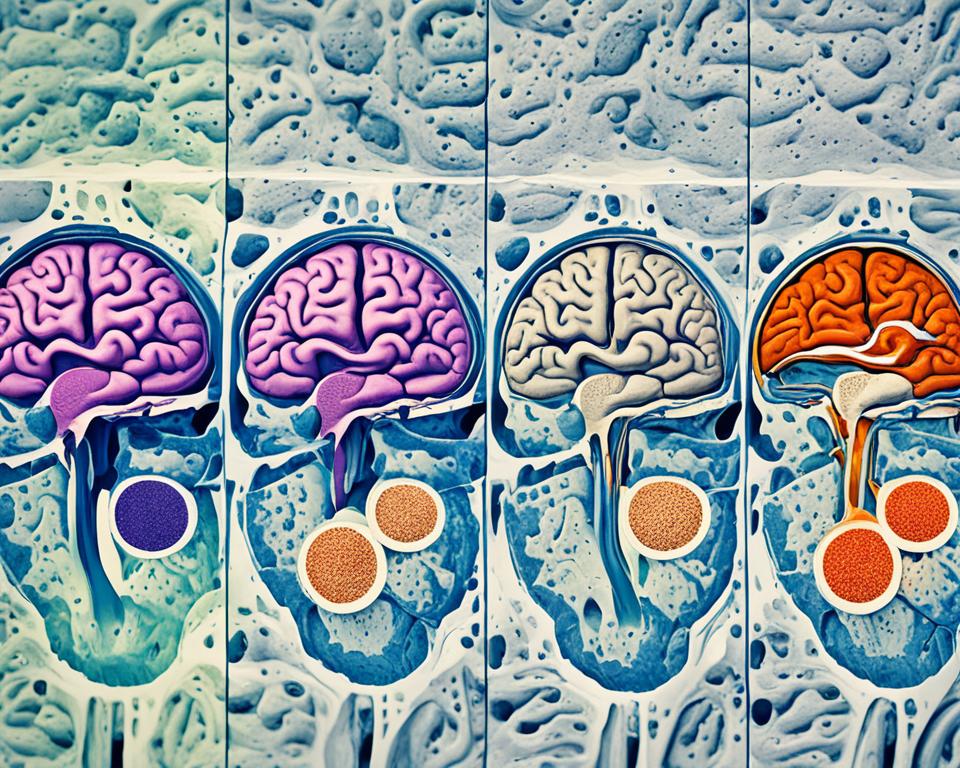Diabetes is a chronic condition characterized by high blood sugar levels and impaired insulin resistance. Emerging research has highlighted the significant impact diabetes can have on brain health and function. This article explores the potential neurological complications of diabetes, including cognitive impairment, increased dementia risk, neuropathy, and brain atrophy, all of which can be attributed to the effects of high blood sugar and insulin resistance. By understanding the link between diabetes and the brain, individuals can take proactive steps to manage their condition and maintain optimal cognitive function.
Read interesting things at : climbing-gym-oz
Key Takeaways
- Diabetes can have a significant impact on brain health and function, leading to various neurological complications.
- High blood sugar levels and insulin resistance are key factors that contribute to cognitive impairment, increased dementia risk, neuropathy, and brain atrophy in individuals with diabetes.
- Understanding the link between diabetes and the brain is crucial for proactive management and maintaining optimal cognitive function.
- Effective management of diabetes, including lifestyle modifications and appropriate medications, can help mitigate the potential neurological complications associated with the condition.
- Regular checkups, screening, and monitoring are essential for early detection and prevention of diabetes-related brain complications.
Introduction to Diabetes and Brain Health
Diabetes, a chronic condition characterized by high blood sugar levels and impaired insulin function, has far-reaching consequences that extend beyond the physical symptoms. Emerging research has shed light on the significant impact diabetes can have on brain health and cognitive function. As the global prevalence of diabetes continues to rise, with an estimated 463 million adults living with the condition worldwide, understanding the neurological complications associated with this condition has become increasingly crucial.
Prevalence of Diabetes and Its Complications
The long-term complications of diabetes can have a profound effect on various aspects of an individual’s health, including the brain. Diabetes has been linked to an increased risk of cognitive impairment, dementia, neuropathy, and other neurological complications that can significantly impact brain function and overall quality of life.
Understanding the Link Between Diabetes and Brain Function
The relationship between diabetes and brain health is complex and multifaceted. High blood sugar levels, insulin resistance, and vascular damage associated with diabetes can all contribute to the development of neurological complications. These factors can lead to cognitive impairment, memory loss, and an elevated risk of dementia, including Alzheimer’s disease and vascular dementia.
By understanding the intricate connection between diabetes and the brain, individuals can take proactive steps to manage their condition and safeguard their cognitive function. This knowledge can empower patients and healthcare professionals to develop effective strategies for preventing and mitigating the neurological complications of diabetes.
Cognitive Impairment in Diabetes
Cognitive impairment is a well-documented complication of diabetes, and research has shown that individuals with diabetes have a higher risk of developing various forms of cognitive decline, including mild cognitive impairment and dementia. This association can be attributed to the profound impact that diabetes can have on brain function and structure.
How High Blood Sugar Levels Affect Cognitive Function
Sustained high blood sugar levels, a hallmark of diabetes, can have detrimental effects on the brain. Hyperglycemia, or elevated glucose levels, can lead to oxidative stress, inflammation, and vascular damage, all of which can contribute to cognitive impairment. Over time, these physiological changes can disrupt neural pathways, impair synaptic function, and even result in neuronal death, ultimately leading to deficits in memory, attention, and overall cognitive performance.
Insulin Resistance and Its Impact on the Brain
Insulin resistance, a key feature of type 2 diabetes, is also closely linked to cognitive impairment. Insulin plays a crucial role in regulating glucose metabolism and maintaining neuronal health. When the brain becomes resistant to insulin, it can disrupt the normal functioning of the hippocampus and other brain regions involved in learning, memory, and executive function. This insulin resistance can also contribute to the development of Alzheimer’s disease, a form of dementia strongly associated with diabetes.
Dementia Risk and Diabetes
Individuals with diabetes face a significantly higher risk of developing various forms of dementia, including Alzheimer’s disease and vascular dementia. This heightened vulnerability is largely attributed to the complex relationship between diabetes and the underlying factors that contribute to cognitive decline.
The Role of Vascular Damage in Dementia Development
One of the primary mechanisms by which diabetes increases the risk of dementia is through its impact on the vascular system. Chronic hyperglycemia, a hallmark of diabetes, can lead to vascular damage, including the narrowing and hardening of blood vessels. This vascular damage can impair blood flow to the brain, reducing the delivery of oxygen and essential nutrients, thereby increasing the risk of stroke and other forms of cerebrovascular disease.
Vascular damage can also contribute to the development of vascular dementia, a condition characterized by cognitive impairment resulting from reduced blood flow to the brain. Additionally, the vascular complications associated with diabetes, such as atherosclerosis and microvascular disease, have been linked to an increased risk of Alzheimer’s disease, the most common form of dementia.
The interplay between diabetes, vascular damage, and cognitive decline is a complex and multifaceted process. Understanding these interconnected mechanisms is crucial for healthcare professionals, researchers, and individuals with diabetes to develop effective strategies for mitigating the risk of dementia and preserving brain health.
Neurological Complications of Diabetes
While the cognitive and dementia-related impacts of diabetes are well-documented, the condition can also lead to various neurological complications that can directly affect brain function and overall neurological health. In this section, we will explore two significant neurological complications associated with diabetes:
Diabetic Neuropathy: Symptoms and Management
and
Stroke Risk and Diabetes
.
Diabetic Neuropathy: Symptoms and Management
Diabetic neuropathy is a common complication of diabetes, characterized by nerve damage that can occur throughout the body. This neurological complication is often linked to prolonged high blood sugar levels and insulin resistance, which can lead to the degeneration of nerves. Symptoms of diabetic neuropathy can include numbness, tingling, and pain in the extremities, as well as issues with digestion, bladder function, and sexual health. Effective management of diabetic neuropathy involves a combination of tight blood sugar control, medications to alleviate symptoms, and lifestyle modifications such as regular physical activity and a healthy diet.
Stroke Risk and Diabetes
Individuals with diabetes have a significantly higher risk of experiencing a stroke compared to those without the condition. This increased risk is primarily attributed to the vascular damage and inflammation associated with diabetes, which can lead to the development of atherosclerosis and the formation of blood clots. Additionally, the cognitive impairment and brain atrophy observed in some individuals with diabetes can further exacerbate the impact of a stroke, leading to more severe neurological complications. Proactive management of diabetes, including maintaining healthy blood sugar levels, blood pressure, and cholesterol, can help reduce the risk of stroke and mitigate its potential impact on brain health.
| Neurological Complication | Symptoms | Management Strategies |
|---|---|---|
| Diabetic Neuropathy |
|
|
| Increased Stroke Risk |
|
|
how diabetes affects the brain
Diabetes can have a profound impact on the brain, leading to various neurological complications that can significantly impair cognitive function and overall brain health. Two key mechanisms by which diabetes can affect the brain are brain atrophy and memory loss.
Mechanisms of Brain Atrophy in Diabetes
One of the ways in which diabetes can negatively impact the brain is through the process of brain atrophy, a gradual loss of brain volume over time. This phenomenon is often observed in individuals with diabetes and can be attributed to several factors, including the detrimental effects of hyperglycemia (high blood sugar levels) and insulin resistance on the brain’s structure and function.
Hyperglycemia, a hallmark of diabetes, can lead to oxidative stress and inflammation within the brain, causing damage to neuronal cells and contributing to the shrinkage of certain brain regions. Additionally, insulin resistance, a characteristic of type 2 diabetes, has been linked to impaired glucose metabolism and reduced blood flow to the brain, further exacerbating the process of brain atrophy.
Vascular damage, another consequence of diabetes, can also play a role in brain atrophy. Diabetes-induced vascular complications, such as narrowing of blood vessels and impaired blood flow, can restrict the delivery of essential nutrients and oxygen to the brain, leading to the degeneration of brain tissue over time.
Memory Loss and Cognitive Decline
Alongside brain atrophy, diabetes can also contribute to memory loss and cognitive decline, including mild cognitive impairment and dementia. The mechanisms underlying this association are multifaceted and involve the interplay of various factors, such as insulin resistance, hyperglycemia, and vascular damage.
Insulin resistance, a hallmark of type 2 diabetes, has been implicated in the development of cognitive impairment. Insulin is not only essential for regulating blood sugar levels but also plays a crucial role in supporting neuronal function and synaptic plasticity, which are crucial for learning and memory formation. Impaired insulin signaling in the brain can disrupt these processes, leading to cognitive decline.
Furthermore, hyperglycemia and the associated oxidative stress and inflammation can directly impact the brain’s structure and function, impairing memory, attention, and other cognitive abilities. Vascular damage, a common consequence of diabetes, can also contribute to the development of dementia by reducing blood flow and oxygen supply to the brain, which can lead to neuronal damage and death.
Diabetes and Depression
The intricate relationship between diabetes and mental health conditions, such as depression, has been a subject of growing interest in the medical community. Emerging research suggests a bidirectional association, where individuals with diabetes are at an increased risk of developing depression, and those with depression are more susceptible to the onset of diabetes.
The Relationship Between Diabetes and Mental Health
Several factors contribute to the complex interplay between diabetes and depression. High blood sugar levels, insulin resistance, and the stress of managing a chronic condition can all have a detrimental impact on an individual’s mental well-being. Conversely, the effects of depression, such as reduced physical activity, poor dietary habits, and the physiological changes associated with the condition, can exacerbate the symptoms of diabetes and make it more challenging to maintain optimal blood sugar control.
Studies have shown that individuals with diabetes are approximately twice as likely to develop depression compared to the general population. This increased risk can be attributed to the neurological complications associated with diabetes, including cognitive impairment, neuropathy, and vascular damage, which can all contribute to the development of mood disorders. Furthermore, the emotional burden of managing a chronic condition, such as the fear of complications and the impact on daily life, can also play a significant role in the onset of depression.
Recognizing the bidirectional nature of the relationship between diabetes and depression is crucial for healthcare providers and patients alike. Addressing mental health concerns in individuals with diabetes can not only improve their overall well-being but also contribute to better management of the physical aspects of the condition, leading to better glycemic control and reduced risk of neurological complications.

Managing Diabetes for Brain Health
Effective management of
diabetes
is crucial for maintaining optimal
brain health
and mitigating the potential
neurological complications
associated with the condition. By proactively addressing
blood sugar levels
and
insulin resistance
, individuals with diabetes can significantly reduce their risk of experiencing
cognitive impairment
,
dementia
, and other
neurological complications
.
Lifestyle Modifications for Better Glycemic Control
Adopting a healthy lifestyle can have a profound impact on glycemic control and, in turn, brain function. Regular exercise, a balanced diet focused on low-glycemic-index foods, and maintaining a healthy weight can all contribute to improved blood sugar regulation and reduced insulin resistance. Additionally, stress management techniques, such as mindfulness practices and adequate sleep, can also play a role in supporting cognitive function and overall brain health.
Medications and Their Impact on Brain Function
Certain medications used to manage diabetes may also have a positive impact on brain health. For example, metformin, a common diabetes medication, has been associated with a reduced risk of cognitive decline and dementia. Additionally, some newer diabetes drugs, such as GLP-1 agonists and SGLT2 inhibitors, have shown promise in improving insulin sensitivity and potentially reducing the risk of neurological complications. Individuals with diabetes should work closely with their healthcare providers to explore the most appropriate medication regimen to support both glycemic control and brain function.
| Lifestyle Modifications | Medications |
|---|---|
|
|
Research and Advancements
The field of how diabetes affects the brain is an active area of research, with ongoing studies exploring the complex relationship between the two conditions. Researchers are making significant strides in unraveling the underlying mechanisms that link diabetes, cognitive impairment, and neurological complications.
Ongoing Studies on Diabetes and Brain Health
Recent studies have shed light on the impact of blood sugar levels, insulin resistance, and vascular damage on brain function and structure. One longitudinal study, published in the Journal of the American Geriatrics Society, found that individuals with poorly controlled diabetes had a higher risk of developing dementia and cognitive decline over time, emphasizing the importance of glycemic control in preserving brain health.
Another study, conducted by researchers at the University of California, San Francisco, investigated the relationship between diabetic neuropathy and memory loss. The findings suggest that the nerve damage associated with diabetes can lead to impairments in memory and cognitive function, underscoring the need for early detection and management of neurological complications.
Potential Therapeutic Approaches
As the scientific community continues to deepen its understanding of the brain-diabetes connection, researchers are exploring various therapeutic approaches to mitigate the neurological complications of diabetes. One promising avenue involves the development of novel pharmacological interventions that target the underlying mechanisms of brain atrophy, vascular damage, and insulin resistance.
Additionally, lifestyle modifications, such as dietary changes, increased physical activity, and stress management, have been shown to have a positive impact on cognitive function and brain health in individuals with diabetes. These holistic approaches aim to address the multifaceted nature of the diabetes-brain relationship and empower individuals to take an active role in managing their cognitive well-being.
Prevention and Early Detection
Maintaining optimal brain health and mitigating the potential neurological complications of diabetes require a proactive approach. Regular checkups, screening, and monitoring are essential for early detection and prevention of diabetes-related brain complications. By staying vigilant and addressing any issues promptly, individuals with diabetes can take control of their condition and preserve their cognitive function.
Importance of Regular Checkups and Screening
Routine visits with healthcare professionals, including primary care physicians and specialists, are crucial for individuals with diabetes. These checkups allow for the monitoring of blood sugar levels, early detection of cognitive impairment, and timely intervention to address any neurological complications. Regular screening for dementia risk and neuropathy can also help identify potential issues before they become more severe.
Risk Factors for Diabetes-Related Brain Complications
Certain factors can increase the risk of diabetes-related brain complications, such as poor glycemic control, long-term insulin resistance, and vascular damage. Individuals with a history of stroke, hypertension, or high cholesterol may also be at a higher risk of experiencing neurological complications associated with diabetes. Recognizing these risk factors and taking proactive measures to address them can help mitigate the potential impact on brain health.

| Risk Factor | Description |
|---|---|
| Poor Glycemic Control | Consistently high blood sugar levels can contribute to cognitive impairment, brain atrophy, and an increased dementia risk. |
| Long-term Insulin Resistance | Prolonged insulin resistance can lead to vascular damage and disrupt the normal functioning of the brain. |
| Vascular Damage | Vascular damage associated with diabetes can contribute to stroke risk and the development of vascular dementia. |
| History of Stroke, Hypertension, or High Cholesterol | These conditions can exacerbate the neurological complications of diabetes, including cognitive decline and neuropathy. |
Patient Stories and Experiences
Navigating the challenges of diabetes can be a deeply personal journey, with each individual’s experience offering valuable insights into the condition’s impact on brain health. In this section, we explore the real-life stories of those living with diabetes and their firsthand accounts of managing the neurological complications that can arise.
Sarah, a 57-year-old woman diagnosed with type 2 diabetes 10 years ago, recalls the gradual cognitive changes she began to notice. “At first, it was just small things, like forgetting where I placed my keys or struggling to remember names. But over time, I found myself having more difficulty concentrating and making decisions. It was really frustrating, and I knew it was connected to my diabetes.”
Through regular checkups and a proactive approach to managing her blood sugar levels and insulin resistance, Sarah was able to mitigate the cognitive impairment she experienced. “Working closely with my healthcare team and making lifestyle changes, like adopting a healthier diet and exercise routine, has helped me maintain better glycemic control and improve my brain function. I still have occasional moments of forgetfulness, but I feel much more in control of my condition.”
In contrast, 68-year-old John, who has lived with type 1 diabetes for over 20 years, has faced more significant neurological complications. “I developed diabetic neuropathy several years ago, which caused numbness and tingling in my feet and hands. But more recently, I’ve also noticed a decline in my memory and mental sharpness. It’s been a real challenge, and I worry about the dementia risk associated with my condition.”
John’s story highlights the importance of early intervention and proactive management of diabetes to mitigate the potential brain atrophy and vascular damage that can occur. By working closely with his healthcare team and exploring new treatment options, John is determined to maintain his cognitive function and quality of life.
These personal accounts underscore the complex and individualized nature of the relationship between diabetes and brain health. They serve as a reminder of the need for continued research, education, and support to empower individuals living with diabetes to make informed decisions and take proactive steps to safeguard their neurological well-being.
Resources and Support
For individuals seeking additional information, support, and resources related to diabetes and brain health, a wealth of valuable resources are available. From organizations dedicated to raising awareness and providing assistance to educational materials and online tools, this section aims to connect you with the resources you need to better understand and manage the impact of diabetes on cognitive function and brain health.
Organizations and Support Groups
The American Diabetes Association (ADA) is a leading organization that focuses on the prevention and management of diabetes, including the potential neurological complications. They offer a variety of resources, educational programs, and support services for individuals living with diabetes. Additionally, the Alzheimer’s Association provides valuable information and resources on the link between diabetes and dementia, as well as support for those affected by cognitive impairment.
Educational Materials and Online Resources
Numerous reputable online resources offer comprehensive information on the relationship between diabetes and brain health. The National Institute of Neurological Disorders and Stroke (NINDS) and the Centers for Disease Control and Prevention (CDC) both provide detailed educational materials on the impact of diabetes on cognitive function, memory loss, and brain atrophy. Additionally, the American Academy of Neurology and the Endocrine Society offer patient-friendly guides and fact sheets that delve into the underlying mechanisms and management strategies for diabetes-related neurological complications.
| Organization | Focus Area | Website |
|---|---|---|
| American Diabetes Association (ADA) | Diabetes management and prevention, including neurological complications | www.diabetes.org |
| Alzheimer’s Association | Cognitive impairment and dementia, including the link to diabetes | www.alz.org |
| National Institute of Neurological Disorders and Stroke (NINDS) | Educational resources on the neurological impact of diabetes | www.ninds.nih.gov |
| Centers for Disease Control and Prevention (CDC) | Comprehensive information on diabetes and its complications, including brain health | www.cdc.gov/diabetes |
| American Academy of Neurology | Patient-friendly guides on managing neurological complications of diabetes | www.aan.com |
| Endocrine Society | Educational resources on the endocrine system, including the impact of diabetes on the brain | www.endocrine.org |
Conclusion
In this comprehensive exploration, we have delved into the profound impact that diabetes can have on brain health and function. The neurological complications associated with this chronic condition, including cognitive impairment, increased dementia risk, neuropathy, and brain atrophy, underscore the critical need for heightened awareness and proactive management strategies.
Through in-depth analysis, we have uncovered the underlying mechanisms by which high blood sugar levels, insulin resistance, and vascular damage can adversely affect the brain. The bidirectional relationship between diabetes and mental health conditions, such as depression, further emphasizes the holistic approach required to safeguard cognitive function and overall neurological well-being.
As we look to the future, ongoing research and advancements in the field of diabetes and brain health offer promising avenues for improved prevention, early detection, and targeted interventions. By embracing lifestyle modifications, optimizing medication management, and leveraging the support of healthcare providers and specialized resources, individuals with diabetes can take proactive steps to mitigate the potential neurological complications and maintain a healthy, vibrant brain throughout their lives.



